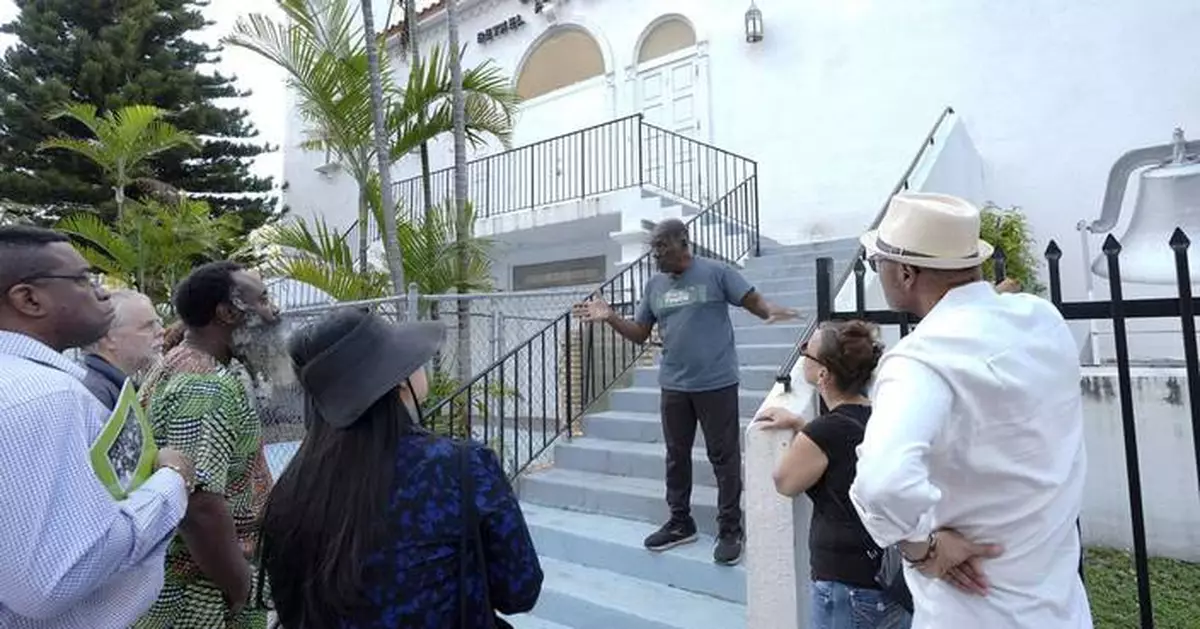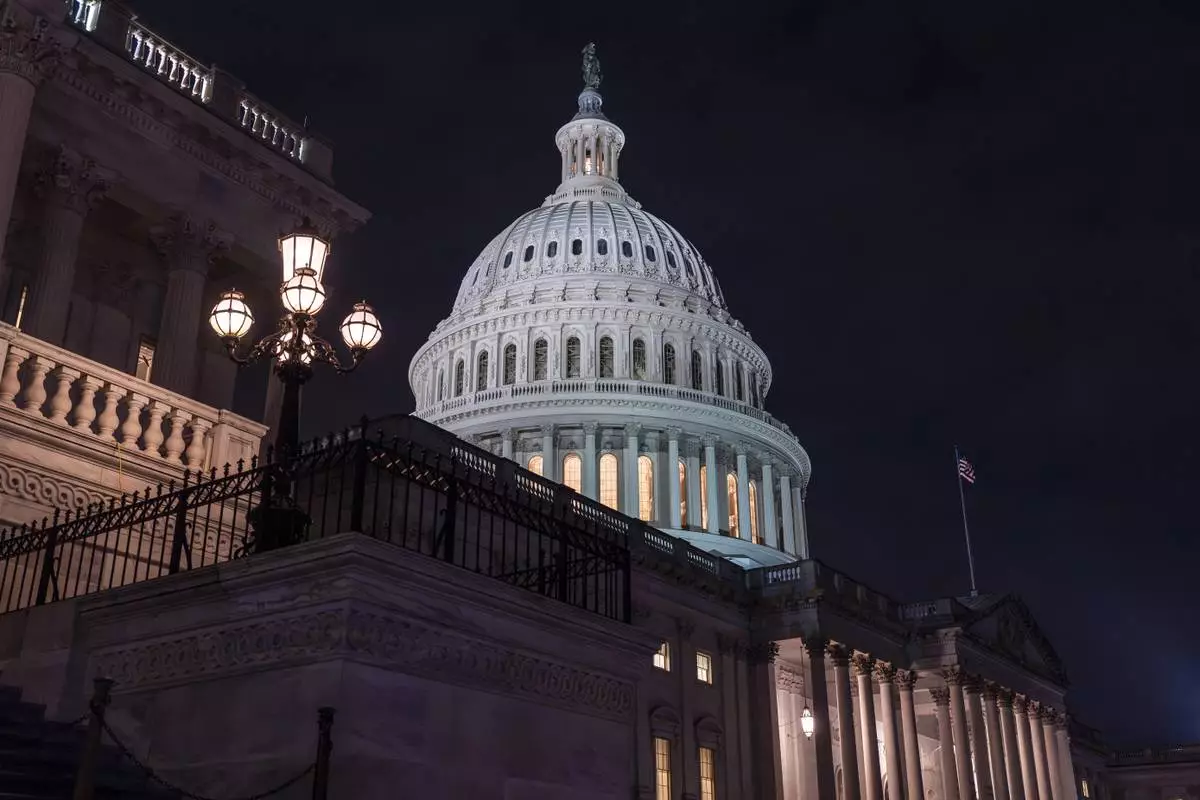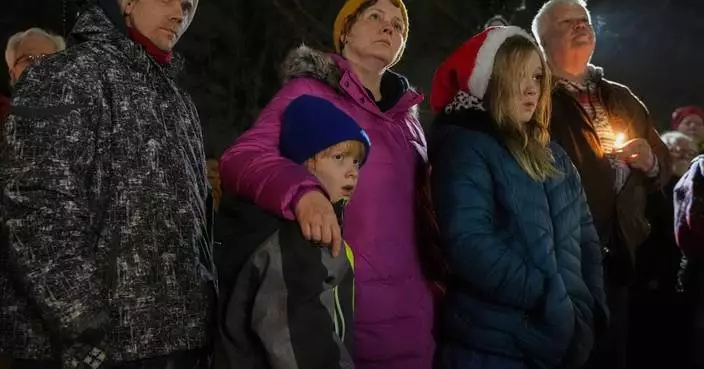TALLAHASSEE, Fla. (AP) — Buried among Florida's manicured golf courses and sprawling suburbs are the artifacts of its slave-holding past: the long-lost cemeteries of enslaved people, the statutes of Confederate soldiers that still stand watch over town squares, the old plantations turned into modern subdivisions that bear the same name. But many students aren't learning that kind of Black history in Florida classrooms.
In an old wooden bungalow in Delray Beach, Charlene Farrington and her staff gather groups of teenagers on Saturday mornings to teach them lessons she worries that public schools won't provide. They talk about South Florida's Caribbean roots, the state's dark history of lynchings, how segregation still shapes the landscape and how grassroots activists mobilized the Civil Rights Movement to upend generations of oppression.
“You need to know how it happened before so you can decide how you want it to happen again," she told her students as they sat as their desks, the morning light illuminating historic photographs on the walls.
Florida students are giving up their Saturday mornings to learn about African American history at the Spady Cultural Heritage Museum in Delray Beach and in similar programs at community centers across the state. Many are supported by Black churches, which for generations have helped forge the cultural and political identity of their parishioners.
Since Faith in Florida developed its own Black history toolkit last year, more than 400 congregations have pledged to teach the lessons, the advocacy group says.
Florida has required public schools to teach African American history for the past 30 years, but many families no longer trust the state's education system to adequately address the subject.
By the state’s own metrics, just a dozen Florida school districts have demonstrated excellence at teaching Black history, by providing evidence that they are incorporating the content into lessons throughout the school year and getting buy-in from the school board and community partners.
School district officials across Florida told The Associated Press that they are still following the state mandate to teach about the experience of enslavement, abolition and the "vital contributions of African Americans to build and strengthen American society.”
But a common complaint from students and parents is that the instruction seems limited to heroic figures like the Rev. Martin Luther King Jr. and Rosa Parks and rarely extends beyond each February's Black History Month.
When Sulaya Williams' eldest child started school, she couldn't find the comprehensive instruction she wanted for him in their area. So in 2016, she launched her own organization to teach Black history in community settings.
“We wanted to make sure that our children knew our stories, to be able to pass down to their children," Williams said.
Williams now has a contract to teach Saturday school at a public library in Fort Lauderdale, and her 12-year-old daughter Addah Gordon invites her classmates to join her.
“It feels like I’m really learning my culture. Like I’m learning what my ancestors did,” Addah said. “And most people don’t know what they did.”
State lawmakers unanimously approved the African American history requirement in 1994 at a time of atonement over Florida's history.
Historians commissioned by the state had just published an official report on the deadly attack on the town of Rosewood in 1923, when a white mob razed the majority-Black community and drove out its residents. When the Florida Legislature approved financial compensation for Rosewood's survivors and descendants in 1994, it was seen as a national model for reparations.
“There was a moment of enlightenment in Florida, those decades ago. There really was," said Marvin Dunn, who has authored multiple books on Black Floridians. “But that was short-lived.”
Three decades later, the teaching of African American history remains inconsistent across Florida classrooms, inadequate in the eyes of some advocates, and is under fire by the administration of Republican Gov. Ron DeSantis, who has championed efforts to restrict how race, history and discrimination can be talked about in the state’s public schools.
DeSantis has led attacks on “wokeness” in education that rallied conservatives nationwide, including President-elect Donald Trump. In 2022, the governor signed a law restricting certain race-based conversations in schools and businesses and prohibits teaching that members of one ethnic group should feel guilt or bear responsibility for actions taken by previous generations.
Last year, DeSantis’ administration blocked a new Advanced Placement course on African American Studies from being taught in Florida, saying it violates state law and is historically inaccurate.
A spokesperson for the College Board, which oversees Advanced Placement courses, told the AP they are not aware of any public schools in Florida currently offering the African American Studies class. It's also not listed in the state's current course directory.
Representatives for the Florida Department of Education and the state's African American History Task Force did not respond to requests for comment from the AP.
“People who are interested in advancing African diaspora history can’t rely on schools to do that,” said Tameka Bradley Hobbs, manager of Broward County's African-American Research Library and Cultural Center. "I think it’s even more clear now that there needs to be a level of self-reliance and self-determination when it comes to passing on the history and heritage of our ancestors.”
Last year, only 30 of Florida's 67 traditional school districts offered at least one standalone course on African American history or humanities, according to state data. While not required by state law, having a dedicated Black history class is a measure of how districts are following the state mandate.
Florida's large urban districts are far more likely to offer the classes, compared to small rural districts, some of which have fewer than 2,000 students.
Even in districts that have staff dedicated to teaching Black history, some teachers are afraid of violating state law, according to Brian Knowles, who oversees African American, Holocaust and Latino studies for the Palm Beach County school district.
“There’s so many other districts and so many kids that we’re missing because we’re tiptoeing around what is essentially American history,” Knowles said.
Frustration over the restrictions that teachers face pushed Renee O'Connor to take a sabbatical last year from her job teaching Black history at Miami Norland Senior High School in the majority-Black city of Miami Gardens. Now, she is back in the classroom, but she also has been helping community groups develop their own Black history programs outside of the public school system.
“I wish, obviously, all kids were able to take an African American history class,” O'Connor said, “but you have to pivot if it’s not happening in schools.”
Kate Payne is a corps member for The Associated Press/Report for America Statehouse News Initiative. Report for America is a nonprofit national service program that places journalists in local newsrooms to report on undercovered issues.
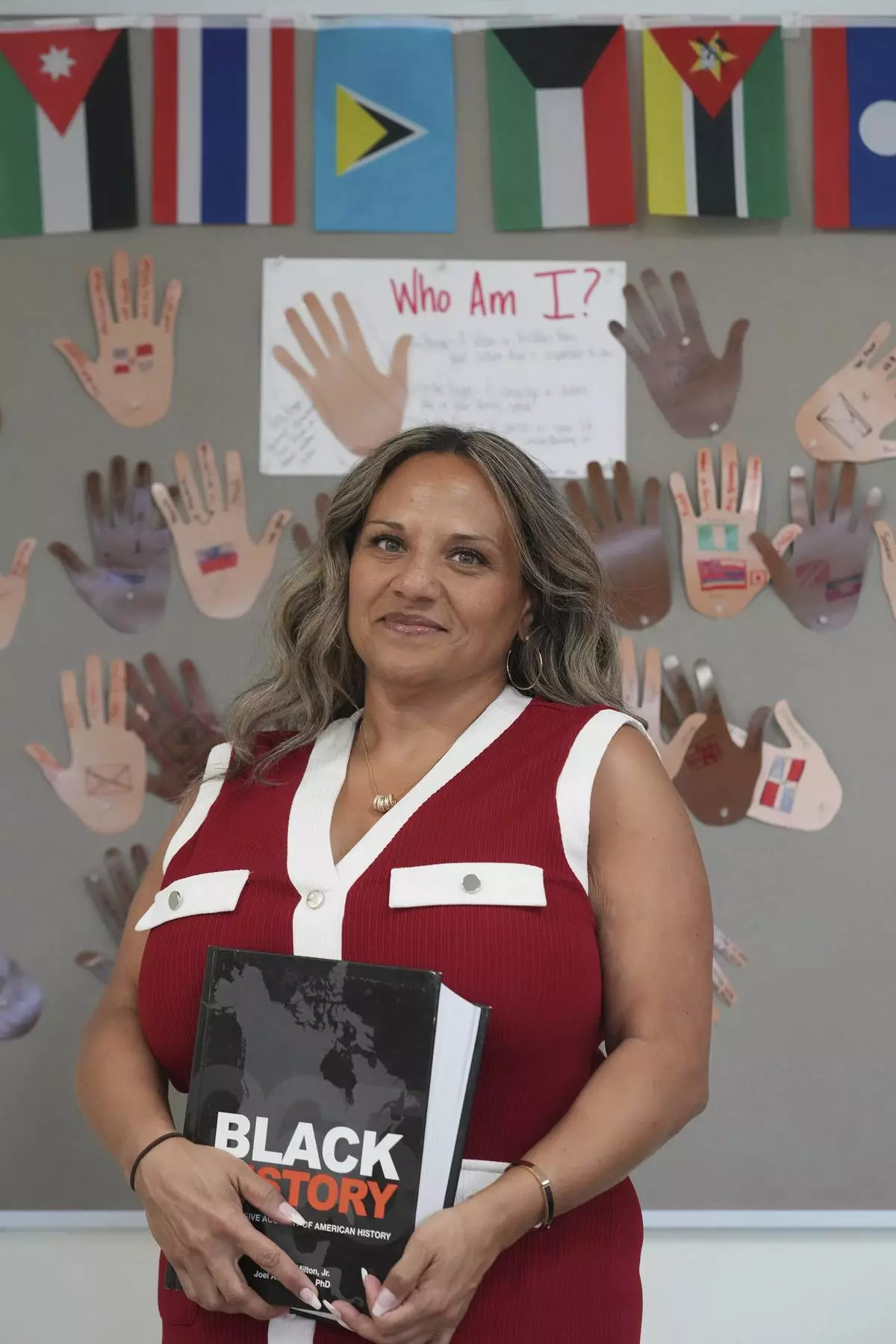
Renee O'Connor stands in one of the classrooms where she teaches Black history at Miami Norland Senior High School, Thursday, Dec. 19, 2024, in Miami Gardens, Fla. (AP Photo/Marta Lavandier)
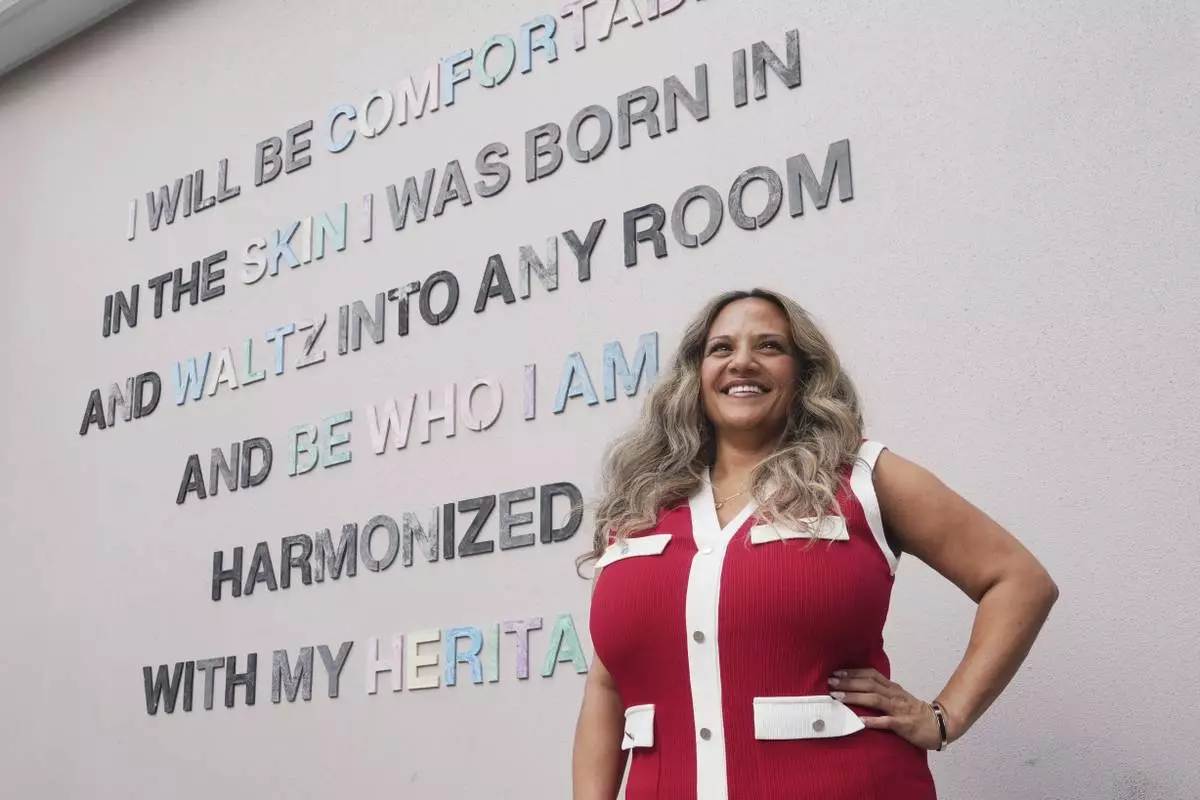
Renee O'Connor near a mural at Miami Norland Senior High School, Thursday, Dec. 19, 2024, in Miami Gardens, Fla. (AP Photo/Marta Lavandier)

Renee O'Connor stands in one of the classrooms where she teaches Black history at Miami Norland Senior High School, Thursday, Dec. 19, 2024, in Miami Gardens, Fla. (AP Photo/Marta Lavandier)
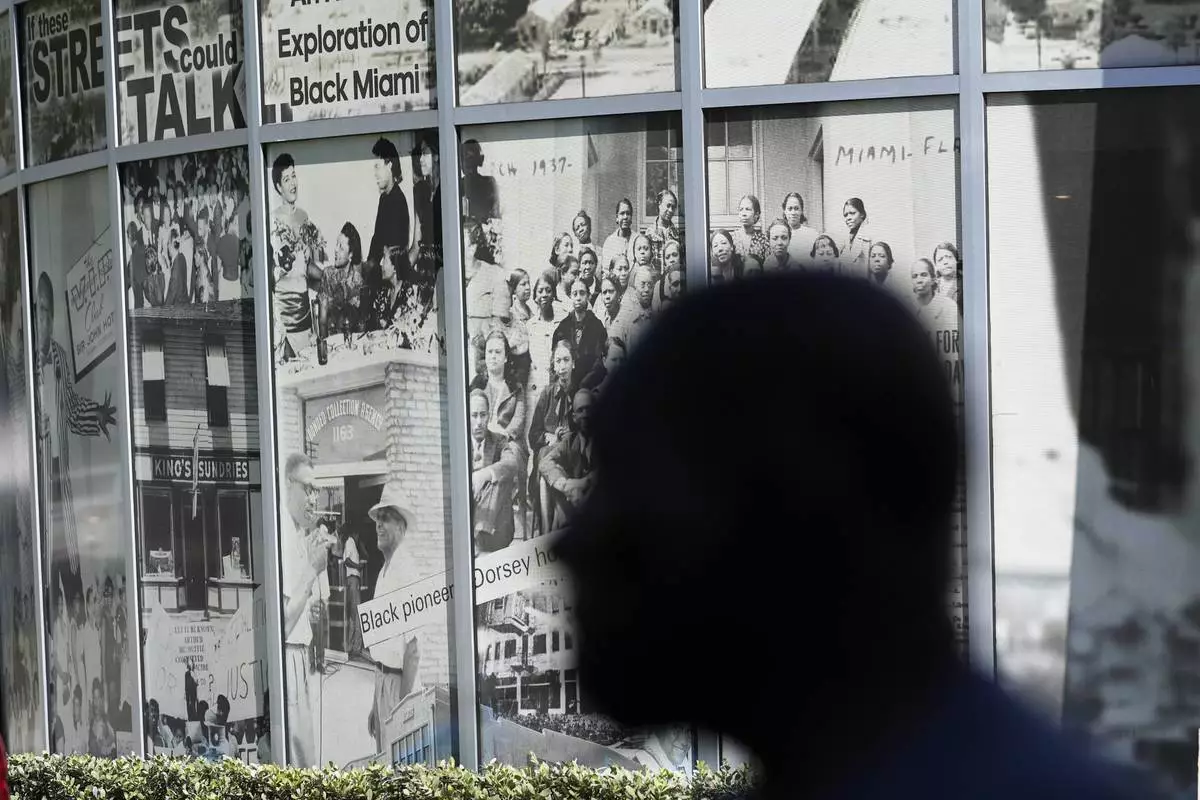
Dr. Marvin Dunn is silhouetted in front of a mural at the Lyric Theater Sunday, Feb. 25, 2024, in Miami. (AP Photo/Marta Lavandier, file)
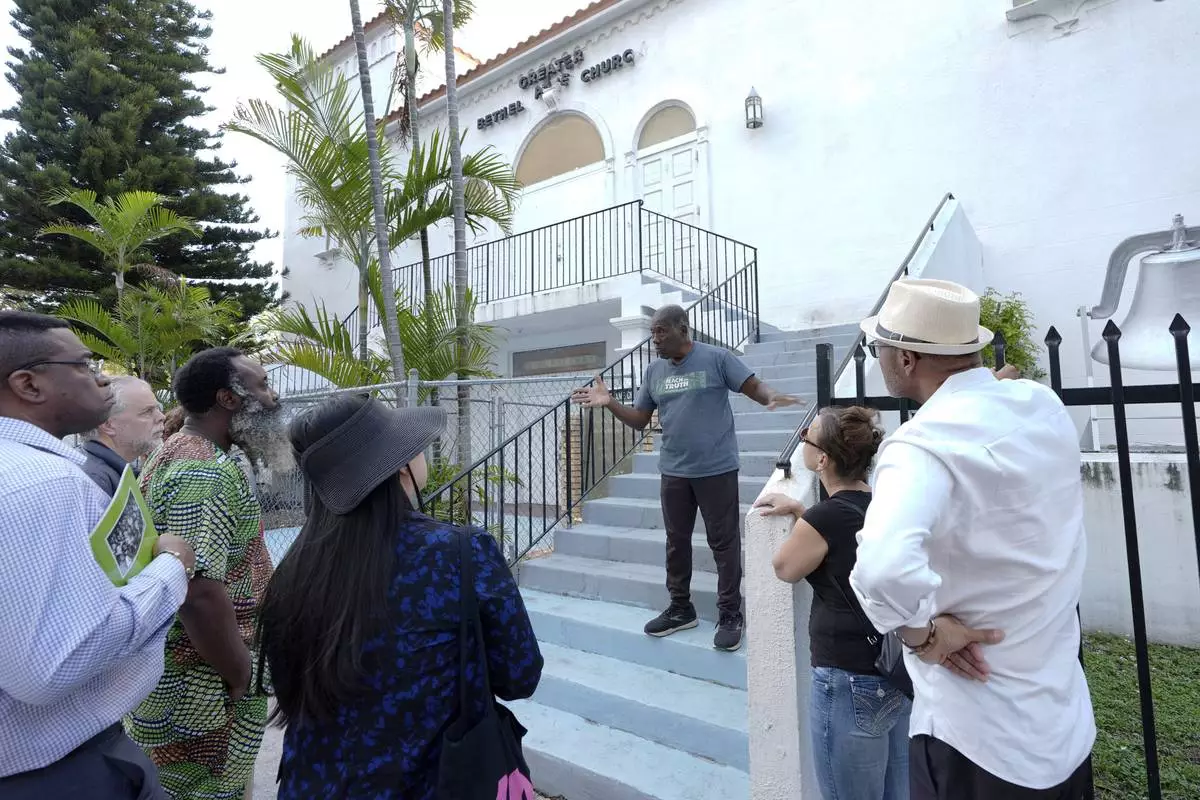
Dr. Marvin Dunn leads a tour of Overtown, a historically Black neighborhood near downtown Miami, Sunday, Feb. 25, 2024. (AP Photo/Marta Lavandier, file)


